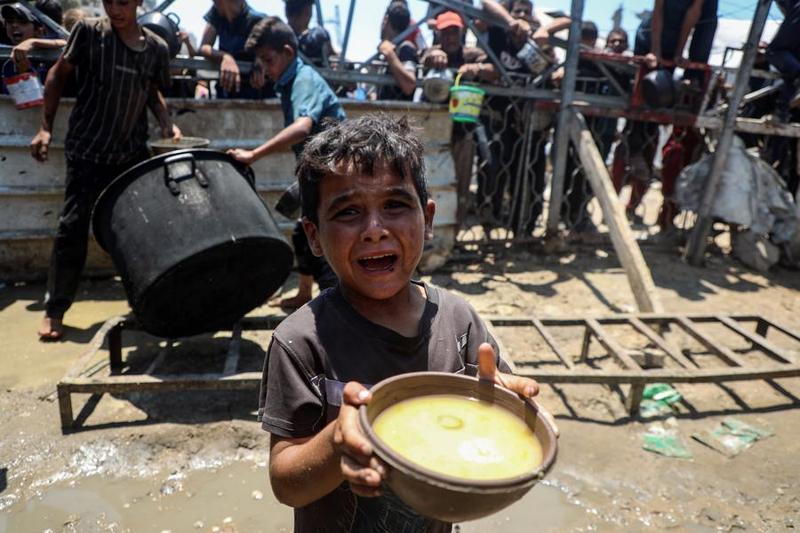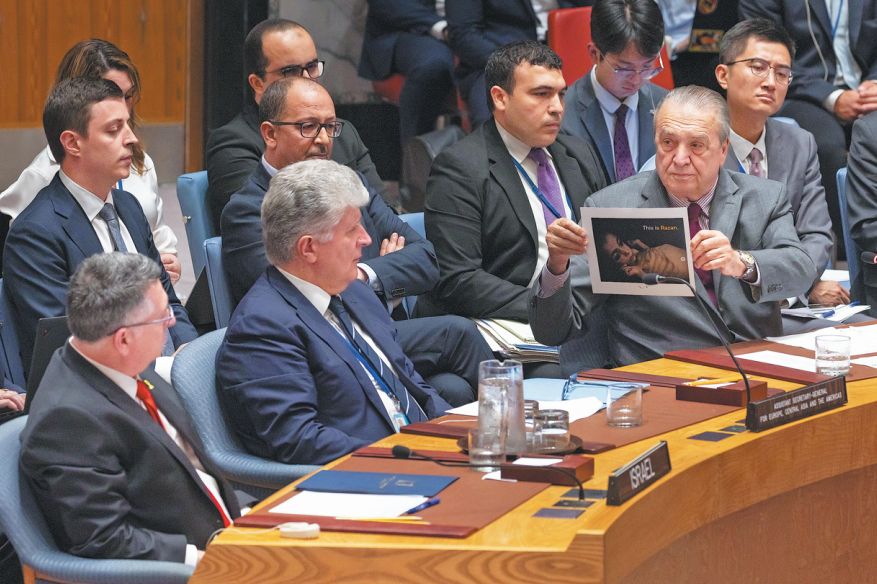Occupy-all plan an excuse to draw Iran in and deflect Gaza focus


While the humanitarian crisis in the besieged Palestinian enclave worsens day by day, Israeli Prime Minister Benjamin Netanyahu has implied that the Israeli army will "occupy all of the Gaza Strip" as ceasefire talks with Hamas have reached an impasse.
Considering that there are similar calls from members of the far-right, on whom Netanyahu's "fragile" coalition government relies, it is very likely Israel's security Cabinet will adopt the plan after deliberating on it on Thursday.
The Netanyahu Cabinet claims the three objectives laid out at the start of Israel's offensive in Gaza — defeating Hamas, seeing the release of its hostages and removing the threat of possible future attacks — remain unchanged. However, if Israel occupies the whole of Gaza, which is not necessarily a means to realize any of its three goals, it will mark a watershed moment since the outbreak of the conflict following Hamas' Oct 7 attacks on Israel.
Currently, Israel controls about 75 percent of Gaza. Although the Hamas' attacks in 2023, in which 1,200 people were killed and 250 taken hostage, triggered Israel's military operations in Gaza, the huge damages Israel has inflicted on the Palestinians have far exceeded retaliation and subjected Tel Aviv to fierce censure from the international community, except from its backer, the United States.
What is particularly bad is Israel intentionally restricting the supply of humanitarian aid to Gaza. According to local health authorities, more than 60,000 Palestinians, including 18,000 children, have been killed either because of Israel's offensive or the famine it has caused.
The plan to occupy the whole of Gaza is yet another bid by Netanyahu to cling to power in the face of mounting opposition to the conflict at home. Increasingly, Israelis are realizing that their leader doesn't want a ceasefire at all.
After all, it is Israel that halted the three-phase ceasefire process brokered by the US and agreed upon by all parties, including itself, after passing the buck to the Hamas.
The more the Israeli people oppose the conflict and want peace, the more their leader pushes for harsher measures in Gaza while opening more fronts with almost all its neighbors.
NBC News reported that Commanders for Israel's Security, a group representing hundreds of retired Israeli security officials, addressed a letter to the US president earlier this month, calling on him to press Israel to end the conflict. In the letter the group said it believes Hamas no longer poses a strategic threat — and that it was time to "end the war, return the hostages" and "stop the suffering".
The US remains the biggest supplier of arms to Israel. According to Brown University's Costs of War Project, US spending on Israel's military operations from Oct 7, 2023, to Sept 30, 2024, reached more than $17.9 billion.
It is clear that Israel's threat to take the whole of Gaza is not about defeating Hamas or rescuing the hostages, but a new tactic by Tel Aviv to steer the situation toward greater chaos, meeting the needs of its domestic politics.
That the Netanyahu Cabinet chose to make its occupy-the-whole-Gaza plan public — when it could have carried it out without making a high-profile announcement — should be regarded as an attempt to test how Israel's regional archrival, Iran, will react.
Iran has practiced considerable restraint after Israel and the US bombed its nuclear facilities in June. But Israel doesn't want to see the situation calm down. Not to mention that in the process it has emerged as the major target of international criticism for the humanitarian crisis in Gaza.
So by releasing the occupy-Gaza plan, Tel Aviv intends to provoke Tehran into taking new actions, which will provide Israel an excuse to further expand its military operation in the region while distracting international attention from Gaza.


































